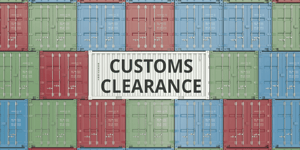Have you noticed any trends in the types of enquiries you get from customers?
One of the most common questions for many businesses is “where’s my parcel?”. Another might be “when will my order arrive?” or “do you ship to my country?”. You may have noticed a common theme. They’re all related to fulfilment.
Many of these questions can be answered with a shipping policy. It can help set expectations with your customers regarding when their parcel will arrive and when to contact you for additional support.
If you don’t have a shipping policy or are looking for tips to update your existing document, make sure to include these vital components.
What is a Shipping Policy?
A shipping policy is a document that highlights all the vital information about how you get a parcel to your customer. It can include details on how much it costs to ship a package, the methods of delivery you use, the length of time it takes to receive an order, and the countries you send items to.
What to Include in a Shipping Policy
The key to an excellent shipping policy is that it’s simple and easy to understand. It shouldn’t be the length of a novel. It should be clear, concise, and not leave anything up to interpretation. There are also critical points that should be included.
Shipping Costs
If you don’t offer live shipping rates on your website, you should outline all your costs to deliver a parcel in your policy. It should also include how much you charge to send a package overseas. Try to be as clear and transparent as possible, so customers know what to expect when they add an item to their cart.
Processing Times
Your customers will want to know the length of time it takes for an order to go from placed to sent. You should include cut-off times if you offer next-day delivery and what happens on weekends and public holidays. The more detail you have will help set expectations with your customers.
Parcel Details
The more information you can provide your customer on how you ship parcels to them, the better. This includes describing the type of packaging you use to fulfil orders. It might be boxes for certain products and satchels for smaller items. As sustainability is on the minds of many shoppers, you could even include how you’re protecting the environment by using specific eco-friendly packaging materials to send parcels.
Domestic and International Shipping Information
The primary component of your shipping policy will include details about where you send parcels. You should add the methods you offer for domestic regions, such as standard and express delivery.
As for international information, you’ll need to be specific about the countries you send packages to and the timeframes by region. You should highlight the products you sell are available to ship overseas as there may be restrictions on the item or materials. It should even highlight any additional fees or charges and who is responsible for paying any duties and taxes.
Service Interruptions
Not everything goes to plan, including deliveries. This year we’ve seen floods and fires impact fulfilment. You should add to your shipping policy that some issues are out of your control. To give customers complete visibility over their order status, consider utilising the Branded Tracking Portal, which will keep them informed of any delays.
How Often Should You Review Your Shipping Policy?
Your shipping policy shouldn’t be a set-and-forget exercise. Schedule a reminder to review it once a quarter or whenever you introduce new delivery options for your customers. As you scale your business, be sure to update any information concerning where you send parcels to and how long someone can expect to receive a package no matter where in the world they’re located.
Choose the Right Fulfilment Partner
Once you’ve created your shipping policy, place it in a visible location for your customers. Review how often it has been read and update the document whenever you get queries about fulfilment. You should notice a reduction in enquiries about parcel deliveries allowing you to focus on the parts of the business that matter most to you.
You’ll also require a fulfilment partner to support your policy. Interparcel’s multicarrier shipping solutions provide you with access to multiple domestic and international courier providers, as well as free tools that help your customers keep track of their orders. Learn more here about how Interparcel can help you and your buyers with their parcel delivery needs.










 Facebook
Facebook Twitter
Twitter Instagram
Instagram Linked In
Linked In YouTube
YouTube